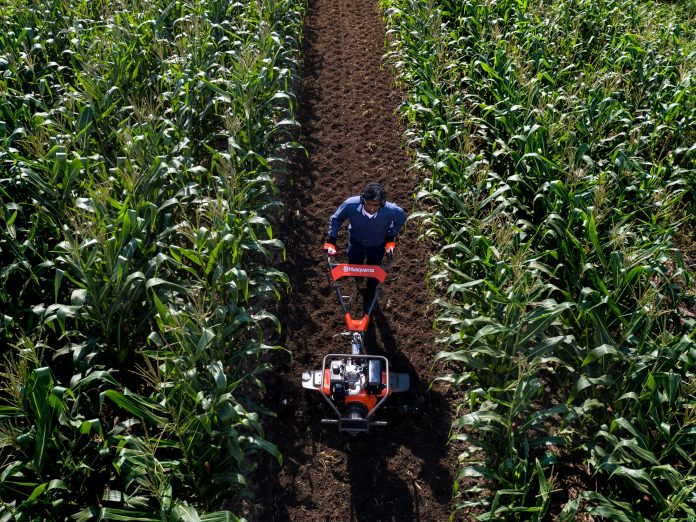Five tips for choosing the right equipment for your small farm
To run a successful farm, equipment is a basic necessity. Choosing the right tools for your small farm will help you get more done on your property; make daily tasks easier on yourself and your farmhands, whilst also increasing yield and thereby profit.
According to Johan Kruger, Husqvarna’s National Sales Manager, efficient equipment management means having the right size and type of equipment for the correct application to do the job in the least amount of time, with the least effort and for the lowest operating cost. He says that all too often, small farmers buy more equipment than they need or equipment that’s too big or too small for the tasks required.
“Farming in Africa is tough so you want tools that are up to the job. As most production uses manual labour, this will impact your efficiencies and productivity so you need to have the best tools to optimise performance,” Johan explains. “To maximise productivity, small farmers, in particular, need rugged, durable and reliable equipment that’s user-friendly and will stand up to rough handling, that is manoeuvrable and easy to transport between working areas.”
Whether you’re farming crops or specialised produce, here are some of Johan’s top tips for small farmers when it comes to choosing essential equipment:
1. Identify your needs
Firstly, take the size of your farm into consideration and be clear about the tasks that need to be done and the equipment this requires. Determine whether you need tools for irrigation, harvesting, distribution, soil preparation or weed control. Will you be clearing brush or forest? Are you mowing one hectare or five? Will you be cultivating soil and spraying? What about water pumps and generators? Once you know what you need, you can look for the equipment that will suit your specific requirements.
2. Set your budget
You need to work with a budget. Then do your homework. Determine the price to quality ratio of your equipment and research the parts, performance and power of each piece. Your equipment is an investment and if you go for quality, you may pay more up front but you’ll get a premium product backed by a premium brand with genuine spare parts, expert knowledge and service. This means longer service life with less maintenance and down time, which will save costs in the long term. In addition, be smart with your spending – for example, Husqvarna has a self-drive tiller that is a cost effective solution for breaking up soil, manoeuvrable and easy to store. Do you need a boom sprayer or will a hand-held sprayer do the job just as well?
3. Look for Multi-Purpose Equipment
Certain equipment may only be used occasionally and having it on hand means it takes up space and requires maintenance. For a smaller farm, it’s wise to look for multi-purpose equipment that is versatile and portable, equipment that has been designed for the small farmer with their specific needs in mind.
4. Talk to an expert
The equipment you buy is going to be used for a long time so before you make the investment, do your research and check with an expert before you make the purchase. Generally, this type of equipment is stocked by an authorised dealer who will provide a range of services such as technical support, spares and servicing. So visit the dealer in your area and while you’re there, make sure you check the warranty too – the duration and exactly what it covers. Husqvarna products for example come with a one year limited warranty and within the warranty period Husqvarna will repair or replace any part that has a factory defect free of charge at an authorised Husqvarna workshop.
5. Think about maintenance
You reap what you sow. This is also true for maintenance and regular services mean fewer repairs down the line. So your purchasing decision should be based on the product support network. If you need spares or a quick repair, you don’t want to travel too far. Ask whether the dealer offers general maintenance servicing and if their products are backed by expert advice and training. It’s value-added services such as these, which come standard with any Husqvarna product, that will save you time and money for years to come.
Johan says that while these tips will help you choose the best equipment for your small farm, you should also make use of the expert knowledge and expertise that’s available to you. “Talk to the various distributors in your area as well as your fellow farmers before buying equipment. With the right knowledge, you can ensure you invest in the specific tools you need to run your farm efficiently and make your life a lot easier.”
For more information on equipment that is suitable for your small farm, visit www.husqvarna.co.za











